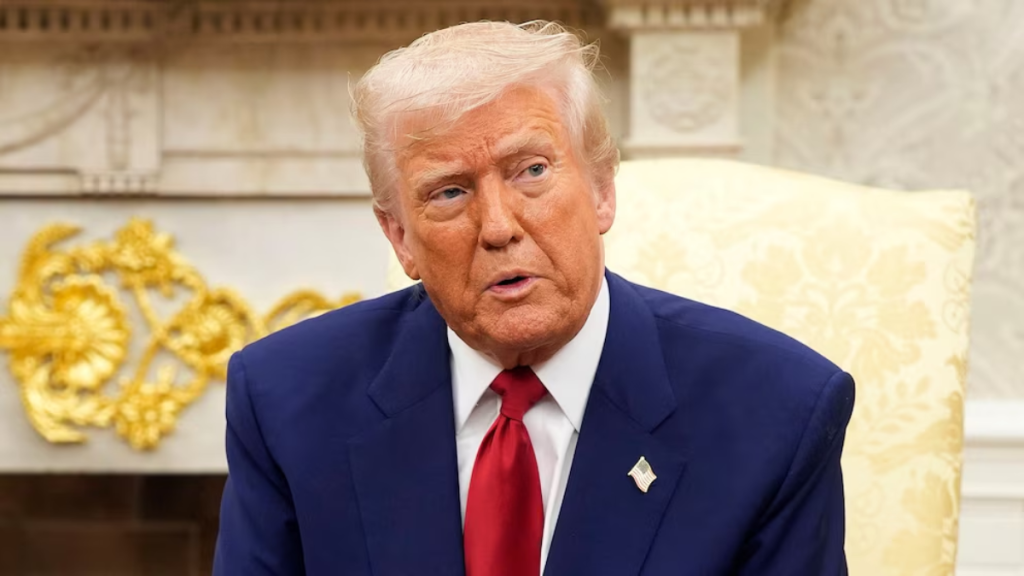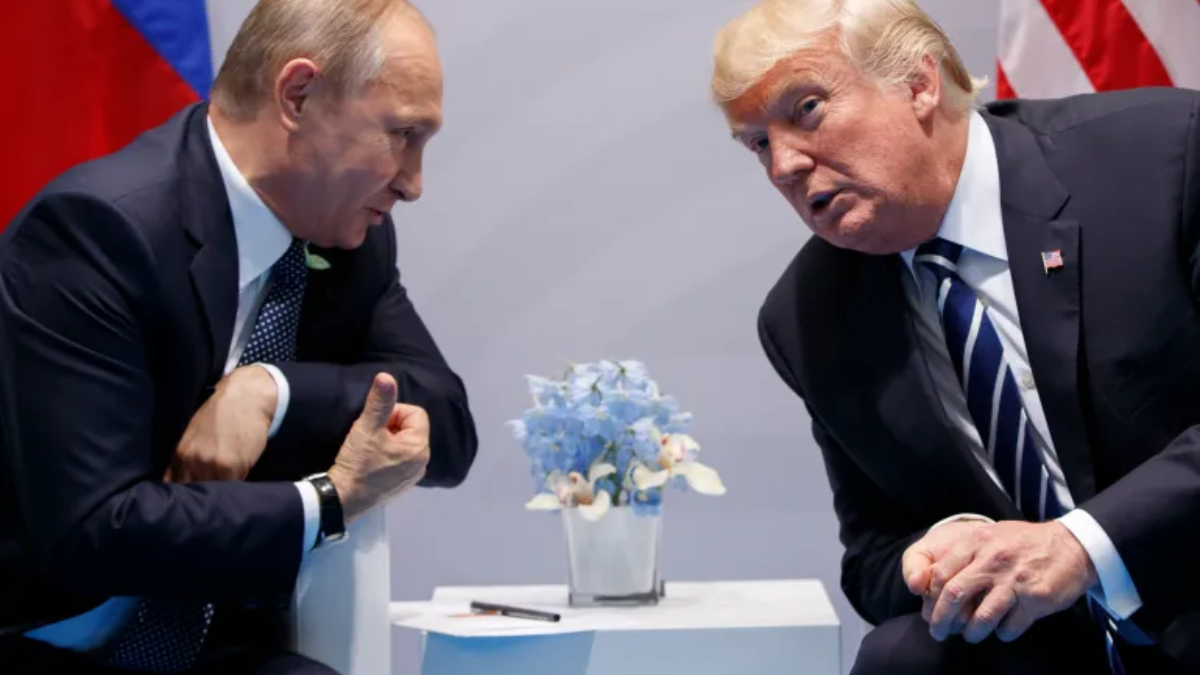Former President Donald Trump claimed in a recent interview that Russia has made a “pretty big” concession in the ongoing war against Ukraine. Speaking to TIME magazine as part of his 2024 campaign coverage, Trump hinted that a potential deal to end the war could have been reached already—if he had been in office.
“I know both people, and I could get it done very quickly,” Trump said, referring to Russian President Vladimir Putin and Ukrainian President Volodymyr Zelenskyy. “I would have a deal made between them within 24 hours.”
Trump has made similar statements during campaign rallies, repeatedly asserting that the war would not have happened under his administration.
Trump Claims War Would’ve Been Avoided Under His Watch
Trump’s remarks come as the war between Russia and Ukraine approaches its third year. Since the invasion began in February 2022, the conflict has resulted in tens of thousands of deaths and the displacement of millions of Ukrainians.
Despite global sanctions and military support for Ukraine from the West, Russian forces continue to hold key positions in eastern Ukraine.
The former president has consistently argued that his approach to foreign policy—marked by direct communication with leaders like Putin—would have prevented the war altogether.
“Putin would not have gone into Ukraine if I were president,” Trump insisted. He further claimed that Russia had recently proposed a large concession that could be the basis of a peace agreement.
However, Trump declined to share specific details, stating, “I think they made a pretty big concession, and I think it’s something that could have been worked out a long time ago.”
No Details, Just Doubts: Experts Remain Skeptical
Trump’s statements have raised eyebrows among foreign policy experts and political observers. Without offering any evidence or elaborating on what the supposed Russian concession entailed, critics argue that Trump’s comments are more political posturing than a credible diplomatic breakthrough.
“Russia has not shown any serious willingness to negotiate a full withdrawal or return occupied territories to Ukraine,” said Fiona Hill, a former National Security Council official specializing in Russian affairs. “So if there’s a ‘big concession,’ it hasn’t been made publicly—or officially.”
Russia has maintained firm demands during prior negotiations, including recognition of its annexation of Crimea and sovereignty over areas of eastern Ukraine, such as Donetsk and Luhansk. These conditions have been repeatedly rejected by Kyiv and Western allies.
Trump Pushes Image as Global Negotiator
Despite the criticism, Trump continues to use his perceived diplomatic prowess as a key talking point in his 2024 campaign. He portrays himself as uniquely capable of managing international relations and achieving peace where others have failed. During the TIME interview, he emphasized his desire to “stop the dying,” pointing to the human cost of the war.
Trump’s reluctance to clarify whether his deal would preserve Ukraine’s full territorial sovereignty has also raised concerns. When pressed on whether Ukraine would keep all its land, he said, “You need the right mediator or the right president. You need a president that will do something about it.”
This ambiguity has fueled speculation that any Trump-brokered deal might involve territorial compromises favoring Russia, which would be strongly opposed by NATO and the European Union.

Criticism From Political Opponents and Allies Alike
President Joe Biden and his administration have dismissed Trump’s comments, saying that the conflict requires a united international front and continued military support to Ukraine. “There’s no shortcut to peace that involves compromising Ukraine’s sovereignty,” said National Security Council spokesperson John Kirby.
Democrats have accused Trump of using Ukraine’s suffering as a campaign talking point. “He’s treating this like it’s a real estate negotiation, not a matter of international law and human rights,” said Rep. Adam Schiff.
Even some Republicans are treading carefully. While many within the GOP support ending U.S. funding for Ukraine, few have endorsed Trump’s idea of making a quick deal with Putin. “Peace is important, but so is freedom and territorial integrity,” said Sen. Mitt Romney.
The Role of Ukraine and Global Stakes
Ukrainian officials have not responded directly to Trump’s claims but have made clear that they will not accept any deal that leaves occupied territories in Russian hands. President Zelenskyy has repeatedly stated that any peace agreement must include the full withdrawal of Russian troops and restoration of Ukraine’s pre-2014 borders.
The war’s outcome is likely to have long-term implications for global security, especially in Europe. Western leaders fear that a weakened response to Russian aggression could set a dangerous precedent and embolden other authoritarian regimes.
Conclusion: High-Stakes Talk Ahead of 2024 Election
Donald Trump’s recent claims about a potential Russian concession offer in the war with Ukraine add fuel to an already intense foreign policy debate ahead of the 2024 U.S. presidential election. With no concrete evidence or diplomatic backing, Trump’s remarks are being viewed by many as campaign rhetoric rather than a roadmap to peace.
Still, for Trump’s supporters, the idea that he could bring a swift end to the war remains compelling. As the conflict drags on and the human cost rises, both American voters and the international community will be watching closely to see how Trump—and his rivals—propose to end one of the most dangerous global conflicts of the 21st century.\
For more expert analysis of the Russia-Ukraine conflict, visit Foreign Policy.
Disclaimer – Our team has carefully fact-checked this article to make sure it’s accurate and free from any misinformation. We’re dedicated to keeping our content honest and reliable for our readers.
